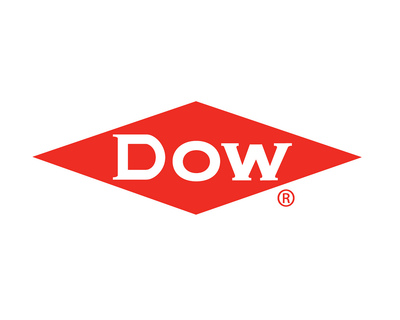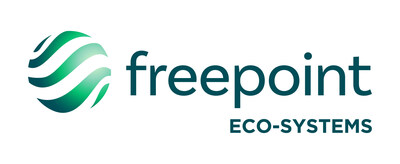Dow and Freepoint Eco-Systems announce supply agreement to transform plastic waste into new circular products
Rhea-AI Summary
Dow and Freepoint Eco-Systems have announced a supply agreement to divert 65,000 metric tons of plastic waste per year from landfills and incineration, converting it into certified-circular pyrolysis oil. This oil will be used to create virgin-grade equivalent plastics at Dow’s U.S. Gulf Coast operations, contributing to a circular economy.
The recycling will take place at a new ISCC Plus-Certified facility in Eloy, Arizona, starting in 2026. Dow will be the sole offtaker from phase one of this facility, which aims to process 90,000 tons of waste annually, converting 70% to pyrolysis oil. These new circular products will be used in food-grade and medical packaging, among other applications.
This agreement supports Dow’s “Transform the Waste” goal and demonstrates their commitment to sustainable practices and reducing reliance on fossil feedstocks.
Positive
- 65,000 metric tons per year of plastic waste diverted from landfills and incineration.
- New ISCC Plus-Certified facility in Arizona to start operations in 2026.
- Dow to produce virgin-grade equivalent plastics from recycled pyrolysis oil.
- Products suitable for food-grade and medical packaging, meeting customer demand for recycled content.
- Facility expected to process 90,000 tons of waste annually, converting 70% to pyrolysis oil.
- Contributes to Dow’s “Transform the Waste” goal and sustainable practices.
- Creates quality green jobs and supports economic growth in Eloy, Arizona.
Negative
- Facility only operational by 2026, indicating a long timeline before impact.
- Potential operational risks and delays in the construction of the new facility.
- Dependence on a single offtaker agreement with Dow could pose business risks if market conditions change.
- Initial phase processes only 90,000 tons of waste annually, a fraction of the total plastic waste generated.
News Market Reaction 1 Alert
On the day this news was published, DOW declined 0.61%, reflecting a mild negative market reaction.
Data tracked by StockTitan Argus on the day of publication.
The supply agreement for 65,000 metric tons of circular feedstock advances the Companies' shared goal to support a circular economy for plastics in
- Once completed, Freepoint Eco-Systems' advanced recycling facility, to be built in
Arizona , will be ISCC Plus-Certified and will recycle end-of-life plastic waste, otherwise destined for landfills or incineration, from the region. - As the sole offtaker from phase one of the
Arizona facility, Dow will transform the certified-circular liquid supply into virgin-grade equivalent plastics and develop new products to meet customer demand for recycled content through a mass balance approach. - The supply agreement demonstrates Dow's momentum towards achieving its "Transform the Waste" goal to accelerate the circular ecosystem.
The pyrolysis oil will be produced at a new advanced recycling facility owned and operated by Freepoint Eco-Systems Eloy Recycling LLC, a Freepoint Eco-Systems affiliate. Once completed, the new advanced recycling facility, to be constructed in
Utilizing the circular liquid supply, Dow will produce new products with virgin-grade equivalent plastics, replacing those made from conventional feedstock. The resulting circular products will be suitable for use in various applications including food-grade packaging (such as pet food, confectionery, and snacks) as well as medical and pharmaceutical packaging, while maintaining existing product performance and reducing reliance on fossil feedstocks.
"This agreement with Dow represents a substantial step toward accelerating the circular economy in the region and helps to scale what will be an important advanced recycling facility in the
"Our agreement with Freepoint Eco-Systems marks another important step in Dow's pursuit to source circular supply and transform end-of-life plastic waste into products that help our customers meet their recycled content goals," said Victor Zapata,
"Through this collaboration, Dow is redefining how we source raw materials for our products while tackling the challenge of plastic pollution," said Issam Lazraq, Dow global sustainable feedstocks director, Feedstocks and Commodities. "By converting locally available plastic waste, that was destined for landfills or incineration, into pyrolysis oil supply for our
As Freepoint Eco-Systems previously announced, once fully operational, the new facility will have a total nameplate capacity to recycle approximately 180,000 tons of plastic waste per year – equivalent to the weight of approximately 9,000 fully loaded semi-trailer trucks. Phase one, expected to start up in 2026, will initially process 90,000 tons of waste, yielding 65,000 metric tons of pyrolysis oil sold exclusively to Dow. The facility will be located in
"The development of this advanced recycling facility by Freepoint Eco-Systems and its affiliates, supported by the agreement with Dow, furthers
Dow and Freepoint Eco-Systems share a commitment to advancing more sustainable, commercially viable, innovative solutions that build a global circular economy. This agreement is an example of how Dow works with expert partners to scale a materials ecosystem that aims to unlock the value of waste and build a progressive recycling infrastructure for plastics. Explore more by visiting dow.com/materialsecosystem.
About Freepoint Eco-Systems
Freepoint Eco-Systems and its related companies are affiliates of Freepoint Commodities LLC, a global commodities merchant providing supply chain management services and eco-friendly products and solutions to its customers. Among other things, Freepoint Eco-Systems is in the business of securing supplies of waste plastic that is not being recycled and converting that waste into reusable products via its advanced recycling facilities. Freepoint Eco-Systems and its related companies are engaged in business operations in the
About Dow
Dow (NYSE: DOW) is one of the world's leading materials science companies, serving customers in high-growth markets such as packaging, infrastructure, mobility and consumer applications. Our global breadth, asset integration and scale, focused innovation, leading business positions and commitment to sustainability enable us to achieve profitable growth and help deliver a sustainable future. We operate manufacturing sites in 31 countries and employ approximately 35,900 people. Dow delivered sales of approximately
For further information, please contact: | |
Sarah Young | Kelly Logan |
Dow | Freepoint Eco-Systems |
+1 989-638-6871 | |
X: https://twitter.com/DowNewsroom
Facebook: https://www.facebook.com/dow/
LinkedIn: http://www.linkedin.com/company/dow-chemical
Instagram: http://instagram.com/dow_official
![]() View original content to download multimedia:https://www.prnewswire.com/news-releases/dow-and-freepoint-eco-systems-announce-supply-agreement-to-transform-plastic-waste-into-new-circular-products-302146857.html
View original content to download multimedia:https://www.prnewswire.com/news-releases/dow-and-freepoint-eco-systems-announce-supply-agreement-to-transform-plastic-waste-into-new-circular-products-302146857.html
SOURCE The Dow Chemical Company










